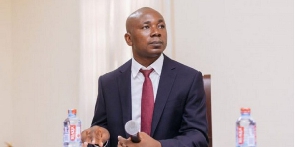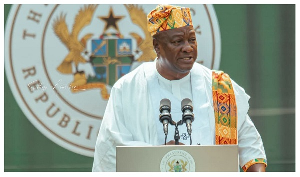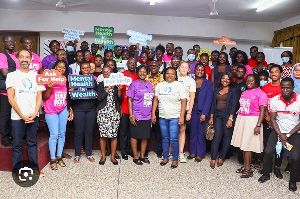Economist, Professor Godfred Bokpin, has intimated that banks could have suffered up to 80% in losses if they had signed up for the original domestic debt exchange programme proposed by the government.
According to him, the initial resistance that characterized the programme actually fueled the reforms that made the deal better.
Banks and other labour unions rejected the domestic debt exchange programme when it was first announced in December 2022.
“If the banks had signed up onto the original domestic debt exchange that was announced on December 5th of upon which Bank of Ghana also risk-weighted the old bonds at 100 percent essentially rendering them useless the losses on the books of the banks would have been more than 80 percent.
“So, you would see that there were a number of pushback and all of that also engineered some level of reforms or changes, amendments to the memorandum,” he was quoted by 3news.com.
The audited financial statements of banks have shown that 15 out of 21 banks recorded losses last year due to the debt exchange programme.
Ghana’s financial and economic climate has been troubled by various uncertainties in the last few years.
According to their 2022 Summary Financial Statements, the losses were due to the reduced coupon rates and the extension of the maturity period from five to fifteen years among others.
Among the banks, Consolidated Bank recorded the most casualty with about GH¢2 billion in losses in 2022.
Even though local banks were the biggest losers, financial intermediaries have made some recoveries in the first quarter of 2023.
Meanwhile, six banks recorded profits (profits before tax, PBT) in 2022.
These include GT Bank (¢191m), Societe Generale (¢172m), FBN Nigeria (¢102m), and UBA (¢91m).
For impaired assets, Absa Bank recorded the most casualty, writing off ¢2.12 billion.
This was followed by Consolidated Bank and GCB Bank which also wrote off ¢2.11 and ¢2.08 billion respectively.
FBN Nigeria (¢212 million), Bank of Africa (¢187 million), and Omni BSIC (¢149 million), however, recorded the least.
For Capital Adequacy Ratio, Consolidated Bank (-5%) fell far below the industry threshold of 10%.
FBN Nigeria, Access, and GT Bank recorded the largest Capital Adequacy Ratio of 57%, 37%, and 36% respectively in the banking industry.
According to a myjoyonline report, some banks including NIB and UMB are yet to release their 2022 Financial Statements.
However, it was reported that banks in Ghana lost about GH¢15 billion in 2022 due to the Domestic Debt Exchange Programme.
SSD/SARA
General News of Wednesday, 10 May 2023
Source: www.ghanaweb.com

















